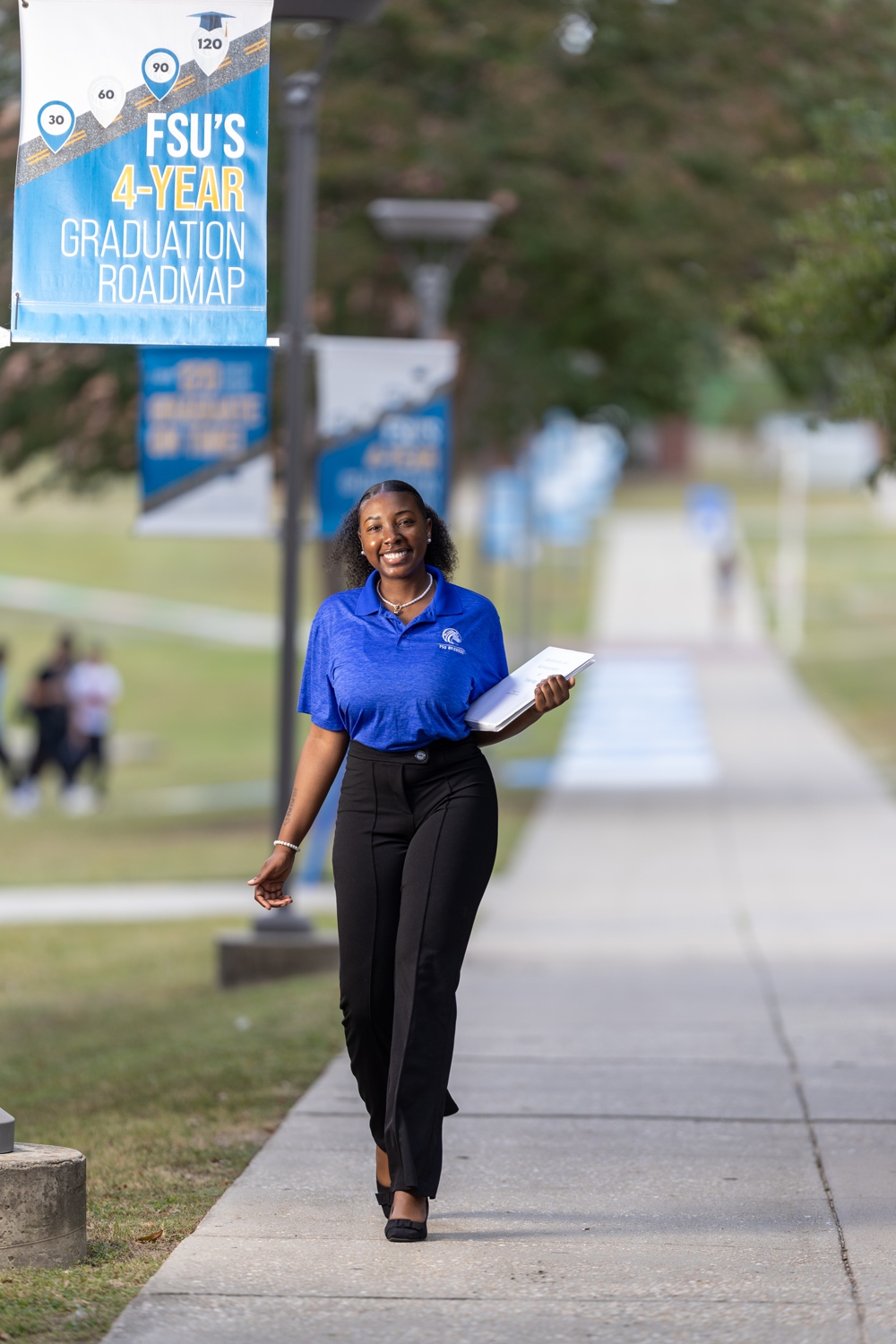Fayetteville State University Receives $2 Million Award to Advance its Summer School Completion Assistance Goals
The grant supports FSU’s 30-60-90 Summer School Program that continues to help students complete their courses and stay on track to graduate

FAYETTEVILLE, N.C. – The Thurgood Marshall College Fund (TMCF) recently announced that Fayetteville State University (FSU) is one of only eight historically Black colleges and universities selected to receive $2 million through its Project HBCU Capacity Building initiative, funded by the Lily Endowment.
“Through these investments we are equipping HBCUs to thrive as engines of economic mobility and academic excellence,” said president and CEO of TMCF Harry L. Williams. “This initiative is not just about funding projects—it’s about building sustainable capacity so that our institutions can continue to lead, innovate, and transform lives for generations to come.”
FSU’s winning proposal was built on the university’s 30-60-90 Summer School Program launched in 2021 to help students graduate in four years or less. The program, now in its 5th consecutive year, is the university’s completion assistance initiative that allows enrolled students to earn up to 7 credit hours; provides room and board and a modest food program with clear academic milestones that guide students from freshmen to graduation, at no cost to the student.
“Though free to our students, FSU has funded this critically important initiative primarily through private foundation support, raising more than $10 million since 2021, with very little state support,” said Darrell T. Allison, chancellor at FSU. “What’s been the ROI over 5 short years? We’ve gone from last in the UNC System in student retention rate at 63% to now 78% - a 15 percent point increase and our 4-year graduation rate – under 20% when I arrived – has increased 5 percent points since 2021.”
Perhaps the most significant impact for those students that have chosen to participate in the 30-60-90 Summer School Program is that in addition to more students being retained and graduating on time, they’ve eliminated $4 million of debt in the process. It’s a promise to our students and their families that when they choose Fayetteville State University, we will walk with them every step of the way to ensure they graduate on time and with less debt,” said Allison.
“Simply put, FSU could not do what it has been able to do these previous 5 years but for organizations like TMCF and the Lily Endowment, Inc. and we cannot thank them enough. This $2 million grant will allow us to build on our success and rxpand that promise to even more Broncos. This support demonstrates what is possible when a university places student success at the center of its mission – and my hope is that FSU is on its way to planning for a 6th consecutive year for the Summer School Program, with hopefully securing state funded support as well,” he added.
That promise is already showing results. Summer enrollment at Fayetteville State grew to 4,692 students in 2025, up from 4,426 the previous year - a 6% increase. More than 2,300 of those students advanced their studies through summer courses, continuing a trend that has made FSU a three-semester institution.
“Our summer enrollment participation is a testament to our students’ ambition and the transformative impact of the 30-60-90 program,” said Vice Chancellor for Student Success and Enrollment Management Pamela Baldwin. “When students recognize they have a clear, supported route to a four-year degree, they seize the opportunity to move forward with confidence. Their drive inspires us to strengthen our commitment and continually create pathways for their success.”
The 30-60-90 framework provides benchmarks for each stage of a student’s journey: 30 credit hours to reach sophomore status, 60 for junior status, 90 for senior status, and 120 to graduate. Students are encouraged to take 15 credits per semester, while the free summer program allows eligible participants to earn up to seven additional credits.
Students and families interested in summer school opportunities through the 30-60-90 initiative can visit the Free Summer Schoolwebpage to learn more about how to get involved.
